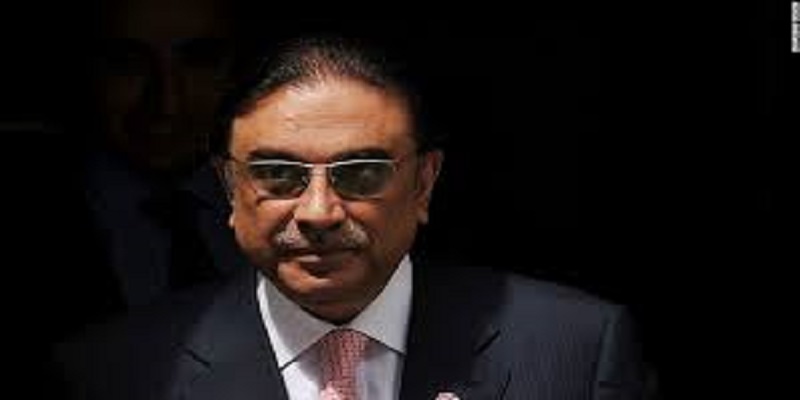Asif Ali Zardari 11th President's Political Odyssey in Pakistan
Asif Ali Zardari, born on July 26, 1955, in Karachi, Pakistan, is a prominent political figure who served as the 11th President of Pakistan from 2008 to 2013. His political career is marked by both triumphs and controversies, reflecting the complex nature of Pakistani politics. Zardari's rise to power, his presidency, and the subsequent challenges he faced provide a nuanced perspective on the dynamics of governance in Pakistan.
Zardari's entry into politics was initially shaped by his marriage to Benazir Bhutto, the charismatic leader of the Pakistan People's Party (PPP) and the first female Prime Minister of Pakistan. The Bhutto-Zardari union was not only a personal partnership but also a political alliance that played a crucial role in shaping the destiny of the PPP. Zardari's foray into politics gained momentum following the execution of Benazir Bhutto's father, Zulfikar Ali Bhutto, in 1979. The Bhutto family's struggle against political adversity fueled Zardari's commitment to the PPP.
In the late 1980s and early 1990s, Zardari faced allegations of corruption, which became a recurrent theme throughout his political career. These accusations, often labeled as politically motivated, haunted him and influenced public perceptions of his credibility. The most significant episode was the imprisonment of Zardari for several years on charges of corruption and murder during the 1990s. Critics argue that these legal battles were part of a broader political strategy to undermine the PPP.
Despite the controversies, Zardari continued to play a crucial role in the PPP's affairs. Following Benazir Bhutto's assassination in 2007, Zardari assumed leadership of the party. The tragic event catapulted him into the national spotlight and positioned him as a key player in the tumultuous world of Pakistani politics.
Zardari's ascendancy to the presidency in 2008 came at a critical juncture in Pakistan's history. The country was grappling with a range of challenges, including terrorism, economic instability, and political uncertainty. The PPP's victory in the general elections of 2008 marked a return to power after nearly a decade. Zardari's presidency was characterized by a delicate balancing act as he sought to address pressing issues while navigating a complex political landscape.
One of the significant achievements during Zardari's presidency was the restoration of the judiciary, which had been a focal point of political turmoil in the preceding years. The government, under Zardari's leadership, worked towards reinstating the judges dismissed during the state of emergency imposed by then-President Pervez Musharraf. This move was widely applauded as a positive step towards upholding the rule of law and judicial independence.
Zardari's presidency also witnessed a heightened focus on counterterrorism efforts. The country faced severe security challenges, particularly in the form of extremist violence and militancy. The Swat Valley insurgency in 2009 and the subsequent military operations underscored the gravity of the situation. Zardari, in collaboration with the military, implemented measures to curb terrorism, though the effectiveness of these actions remains a subject of debate.
Economically, Pakistan faced numerous challenges during Zardari's tenure. The global financial crisis of 2008 had a significant impact on the country's economy, leading to inflation, unemployment, and a fiscal deficit. Zardari's government grappled with these issues, implementing economic reforms and seeking international assistance to stabilize the economy. However, critics argue that the results were mixed, with lingering economic challenges persisting.
Zardari's presidency was marked by his efforts to strengthen ties with the United States, particularly in the context of the war on terror. Pakistan's role as a frontline state in the fight against terrorism brought both opportunities and challenges. The U.S.-Pakistan relationship was characterized by cooperation and strains, reflecting the complexities of aligning national interests.
The Raymond Davis incident in 2011 strained U.S.-Pakistan relations, highlighting the underlying tensions between the two countries. The U.S. operation that led to the killing of Osama bin Laden in Abbottabad further intensified scrutiny of Pakistan's role in the war on terror. Zardari's handling of these incidents and his efforts to navigate the delicate balance between alliance and sovereignty drew both praise and criticism.
One of the defining moments of Zardari's presidency was the completion of his term in 2013, marking the first time in Pakistan's history that a democratically elected government completed its full term. The peaceful transition of power to a new government was hailed as a significant milestone in the country's democratic evolution.
However, Zardari's political legacy remains a subject of debate. While some view his presidency as a period of political stability and incremental progress, others criticize his leadership for not fully addressing the deep-seated issues facing Pakistan. The lingering allegations of corruption against Zardari continue to cast a shadow over his political legacy.
After stepping down from the presidency, Zardari remained an influential figure in Pakistani politics. His role in shaping the PPP's strategies and his interactions with subsequent governments underscored his enduring impact on the political landscape. However, the controversies surrounding his personal and political life continue to shape perceptions of Asif Ali Zardari.
Asif Ali Zardari's journey as the 11th President of Pakistan is a complex narrative that reflects the challenges and complexities of Pakistani politics. From his early involvement in politics as the spouse of Benazir Bhutto to his presidency marked by both achievements and controversies, Zardari's political trajectory is emblematic of the intricate web of power, personalities, and issues that define the political landscape in Pakistan. His legacy, shaped by the context of his time in office and the subsequent years, remains a subject of analysis and discussion, capturing the nuanced dynamics of governance in one of South Asia's most consequential nations.

